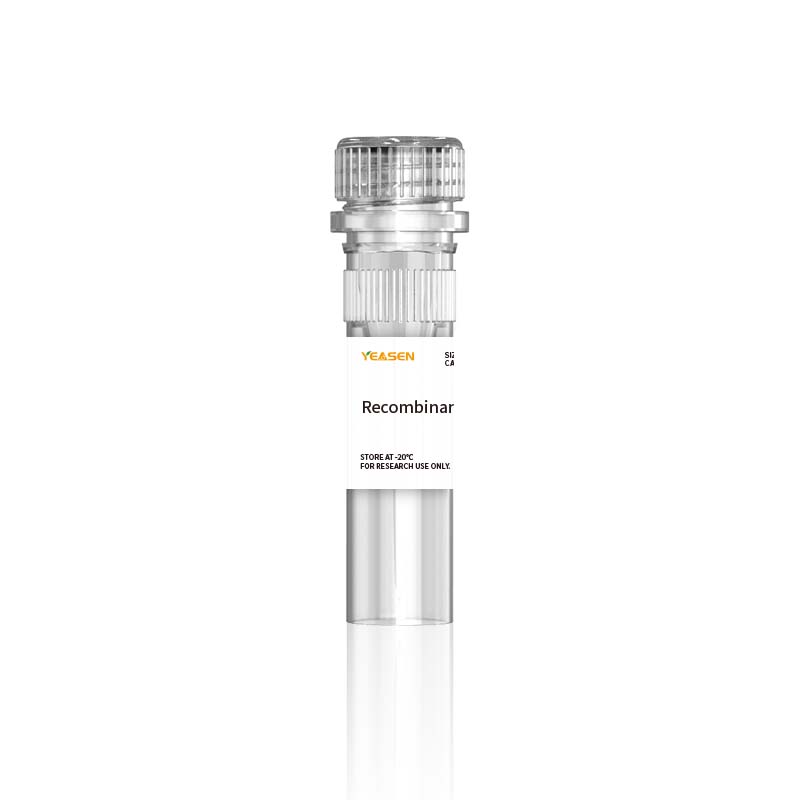Description
C-type lectin domain family 12 member A (CLEC12A), also known as C-type lectin-like molecule 1 (CLL1), dendritic cell-associated lectin 2 (DCAL-2), myeloid inhibitory C-type lectin-like receptor (MICL), killer cell lectin like receptor-1 (KLRL1) and CD371, is a member of the C-type lectin receptor superfamily. C-type lectins are the most diverse and prevalent lectin family in immunity. Particular interest has recently been attracted by the C-type lectin-like receptors on NK cells, which appear to regulate the activation/inhibitory balance of these cells, controlling cytotoxicity and cytokine production. CLEC12A receptor has emerged as a leukemia-associated and cancer stem cell marker in myeloid malignancies. The CLEC12A TriKE induced robust NK-cell specific proliferation, enhanced NK-cell activation, and killing of both AML cell lines and primary patient-derived AML blasts in vitro while sparing healthy HSCs.
Specifications
|
Synonyms |
MICL; CLL-1; CLEC12A; CLL1; DCAL2; DCAL-2; CD371; CD303; CLECSF11; CLECSF7; DLEC; HECL; PRO34150; DCAL-2 |
|
Uniprot No. |
Q5QGZ9-2 |
|
Source |
Recombinant Biotinylated Human CLEC12A/MICL/CLL-1 Protein is expressed from HEK293 Cells with His tag at the N-terminal and Avi tag at the C-terminal. It contains His65-Ala265. |
|
Molecular Weight |
The protein has a predicted MW of 26.4 kDa. Due to glycosylation, the protein migrates to 38-50 kDa based on Tris-Bis PAGE result. |
|
Physical Appearance |
Sterile Filtered White lyophilized (freeze-dried) powder. |
|
Purity |
> 95% as determined by SDS-PAGE and HPLC |
|
Endotoxin |
< 1.0 EU per 1 μg of the protein by the LAL method. |
|
Formulation |
Lyophilized from 0.22 μm filtered solution in PBS (pH 7.4). Normally 5% trehalose is added as protectant before lyophilization. |
|
Reconstitution |
Centrifuge tubes before opening. Reconstituting to a concentration more than 100μg/mL is recommended. Dissolve the lyophilized protein in distilled water. |
Storage
The products are shipped with ice pack and can be stored at -20℃ for 1 year.
2-7 days, 2 to 8 °C under sterile conditions after reconstitution.
3 -6 months, -20 to -80°C under sterile conditions after reconstitution.
Recommend to aliquot the protein into smaller quantities for optimal storage. Please avoid freeze-thaw cycles.
Note
1.For your safety and health, please wear lab coats and disposable gloves for operation.
2.For research use only!
Product Data

Payment & Security
Your payment information is processed securely. We do not store credit card details nor have access to your credit card information.
Inquiry
You may also like
FAQ
The product is for research purposes only and is not intended for therapeutic or diagnostic use in humans or animals. Products and content are protected by patents, trademarks, and copyrights owned by Yeasen Biotechnology. Trademark symbols indicate the country of origin, not necessarily registration in all regions.
Certain applications may require additional third-party intellectual property rights.
Yeasen is dedicated to ethical science, believing our research should address critical questions while ensuring safety and ethical standards.

